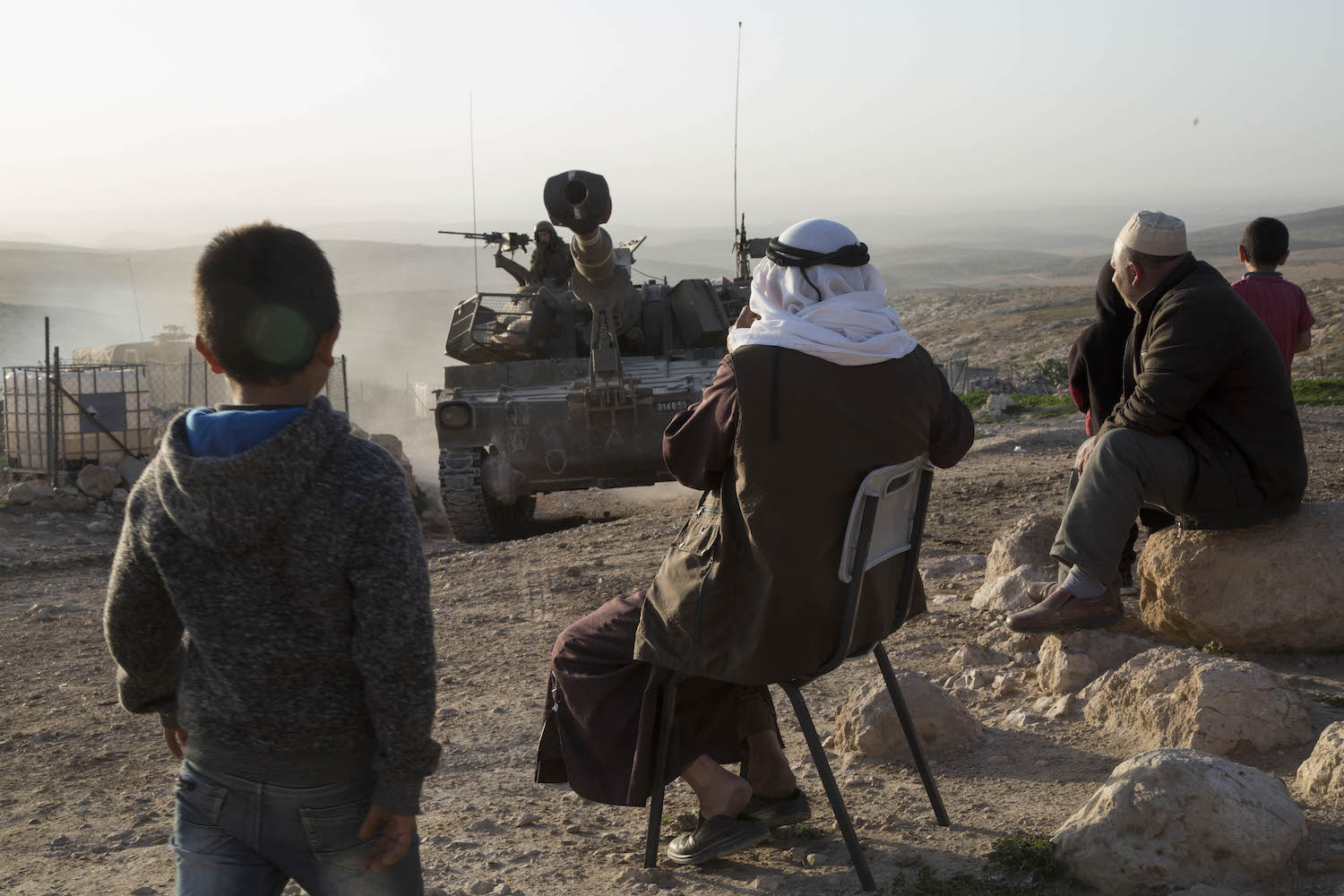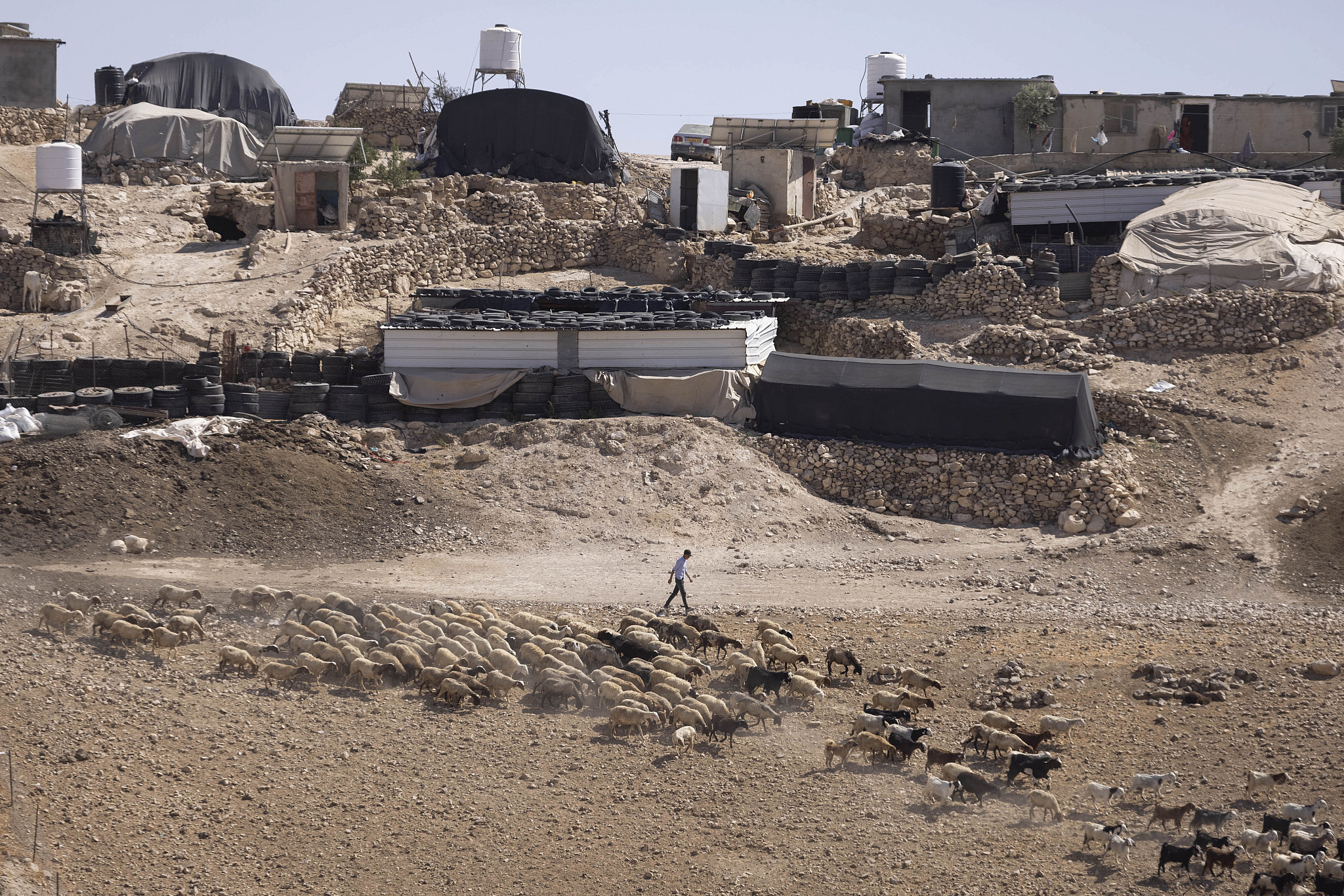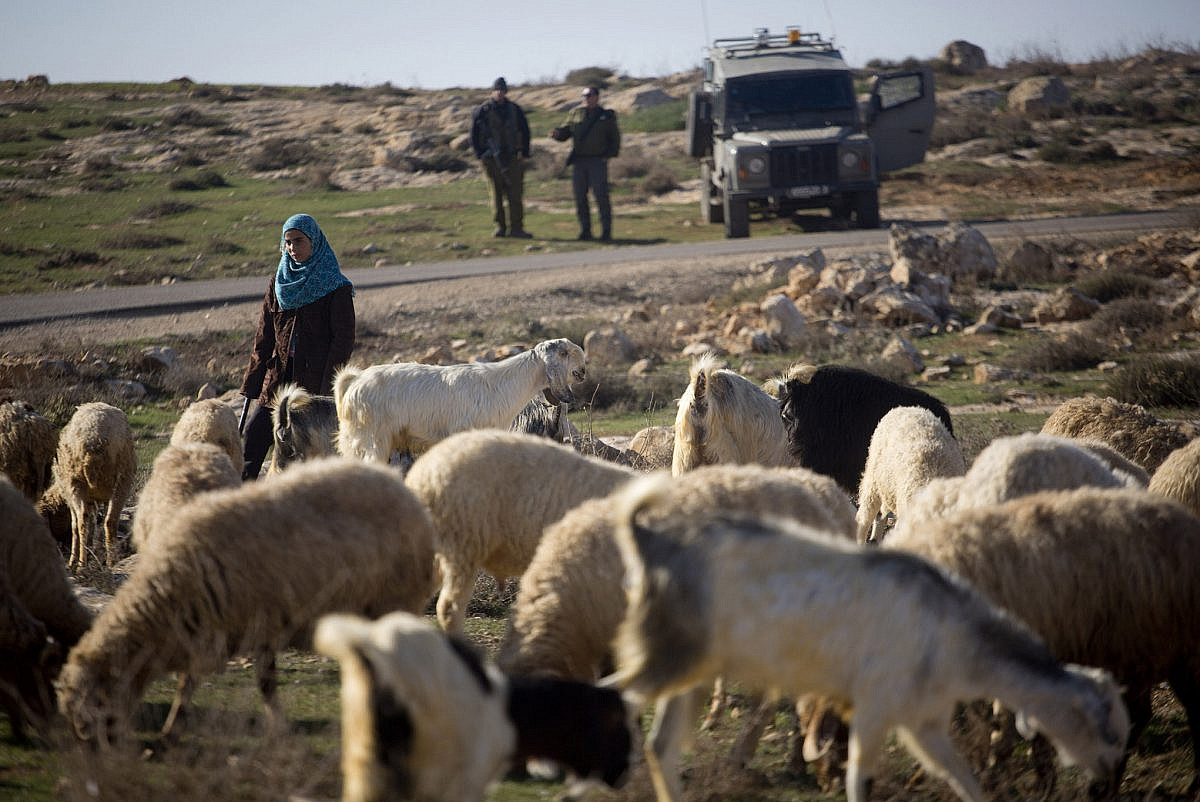For as long as I can remember, Palestinian shepherds here in Masafer Yatta, in the South Hebron Hills region of the occupied West Bank, have grazed their sheep freely each spring across thousands of dunams of land. They would move between abundant pastures, with no need to purchase water or fodder for their animals, because the supply was plentiful. While our villages depend on agriculture and livestock, it is more than just a form of subsistence: it is our traditional way of life.
But one year ago, all of that changed. In May 2022, the Israeli occupation’s High Court ruled against the Palestinian residents of Masafer Yatta and in favor of the Israeli army turning the area into a “firing zone” for military training. In the wake of the court’s ruling, the army has escalated its repression against Palestinians here to try to forcibly displace us from the land our ancestors have lived on for centuries. And these policies have had a particularly severe impact on shepherds.
“Everything is forbidden under the pretext that we live in a firing zone, even grazing sheep,” explains Issa Makhamra from the village of Jinba, beside which the Israeli army has established a new base in the aftermath of the court’s decision. “Whenever we go anywhere, they set up a checkpoint. When I want to go to the city, I have to pass through this checkpoint, and I am stopped and detained for long hours. I swear to you, if the army could keep sunlight and air from us, they would do it.”
Muhammad Ayoub Abu Subha, another shepherd from the village of Al-Fakheit, used to graze his flock of sheep across the pastures on his land. But in the past year, accessing that land has become impossible. “The army closed roads and put up checkpoints,” he says. “Our agricultural crops were destroyed by tanks, bulldozers, and military vehicles, and we were prevented from reaching our pastures under the pretext that this area had become the property of the army. I never imagined that my home, which I own, would become a restricted area. I feel like I’m going crazy and losing my mind.”

Because thousands of dunams of natural pastures have been lost, shepherds in Masafer Yatta must now buy fodder from nearby cities such as Yatta, and then transport it at exorbitant prices. That is, if they are even able to transport it at all, given the army’s intensive deployment throughout the area, and the fact that soldiers frequently confiscate Palestinians’ cars and arrest the drivers under the pretext that they are inside a firing zone.
Last winter, Makhamra was held up at a checkpoint the army erected at the entrance to Jinba. “I needed to buy fodder for my sheep, so I went with a tractor. When I reached the checkpoint, they did not allow the driver to enter, and forced him to put the fodder on the ground near the checkpoint. I was afraid that it would rain and the fodder would spoil, so I brought my son and a group from the village to transport it on donkeys over 500 meters. This is a simple example of what happens to us daily as a result of being barred from reaching our pastures, the confiscation of our land, the destruction of roads, and the use of checkpoints.”
‘I wanted to scream and cry’
Life in Masafer Yatta was certainly not easy before the court ruling last year. Residents have long been exposed to the same Israeli settler violence and army restrictions that aim to drive Palestinians out of their homes across much of the rural West Bank, so that their land can be taken over for further Jewish settlement.
Abu Subha, for example, has seen his home demolished on four different occasions by the army on the grounds that he built without permits — which Israel makes almost impossible for Palestinians to obtain. Now, however, the army’s intensified presence is causing severe economic difficulties for the region’s shepherds.
Most read on +972
“We have always fed our sheep off of our own land, either through direct grazing or feeding them from crops that are grown on our land, depending on the season,” Abu Subha explains. “Sometimes we would buy a little feed if there was a shortage. I made enough money for myself and my family. But then the occupation court decided to give the green light to the army for military training in the middle of our village, right on top of our land and natural pastures.
“This has been the hardest year of my life,” he continues. “I have a family and children, some of whom study at school and some of whom are still too young. But they all have needs, such as clothes, food, and basic school supplies. I used to not worry about these needs because I was able to fulfill them easily, but today I can’t.”

The financial difficulties have taken a deeply emotional toll for Abu Subha. “One day I was leaving to go to the city in order to buy some things for the house, and my son, who is not even four years old, said to me, ‘Dad, I need new shoes, my shoes are torn,’ and I had to tell him that there wasn’t enough money. What should I do? I wanted to cry. I wanted to scream. I try as much as possible to be composed in front of my family so that they can take strength from me. But I really want to cry.”
A year after the terrible ruling, it is clear just how devastating an impact it has already had on the lives of Palestinian shepherds in Masafer Yatta, where livestock are considered a pillar of life and are depended on for families’ economic stability. The changes that have taken place in the area, granting the Israeli army the right to do whatever it wants in the middle of our villages, is a civilian death sentence. It makes our lives untenable; it is a crime against humanity. This ruling must be repealed, and Palestinians must be given the right to live in security on their land and in their homes.




